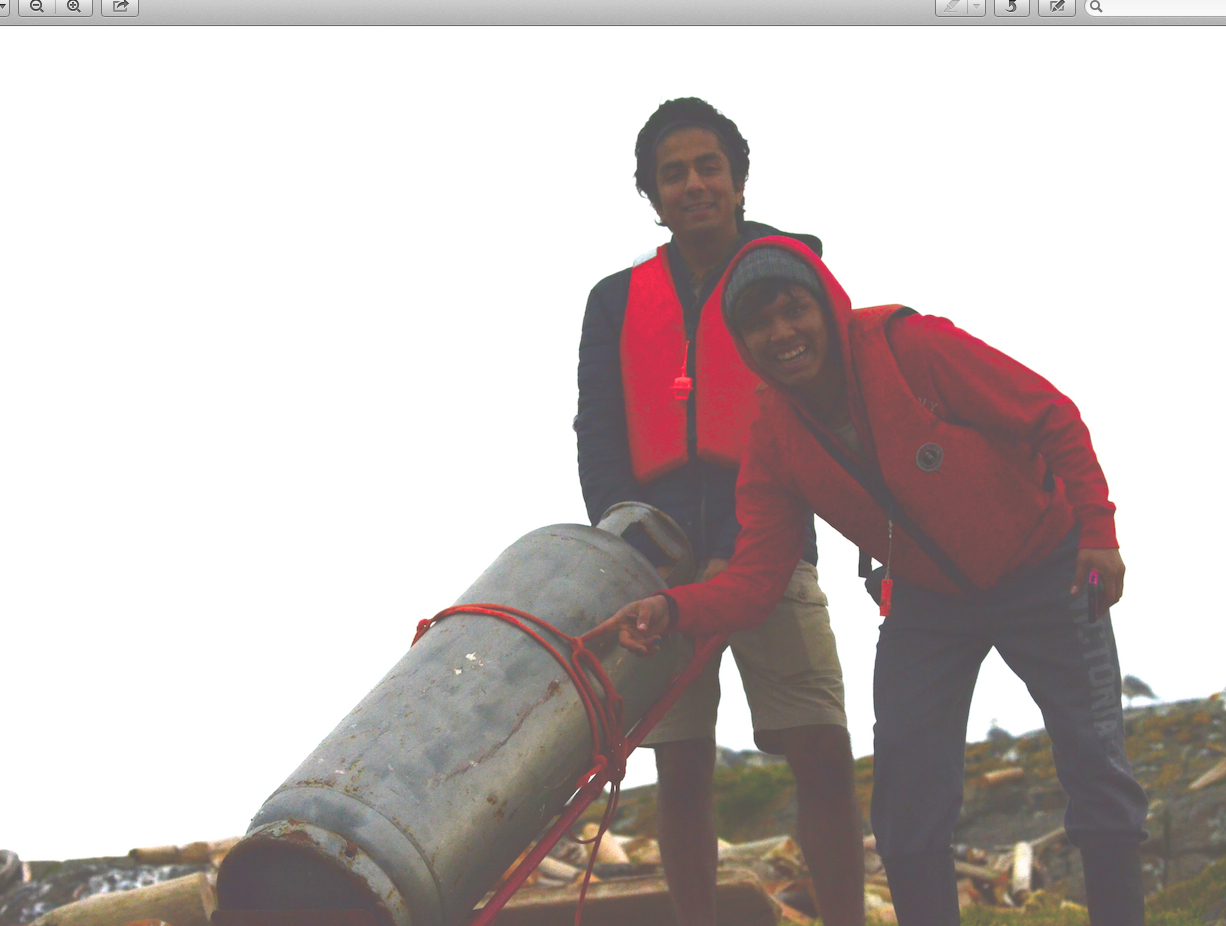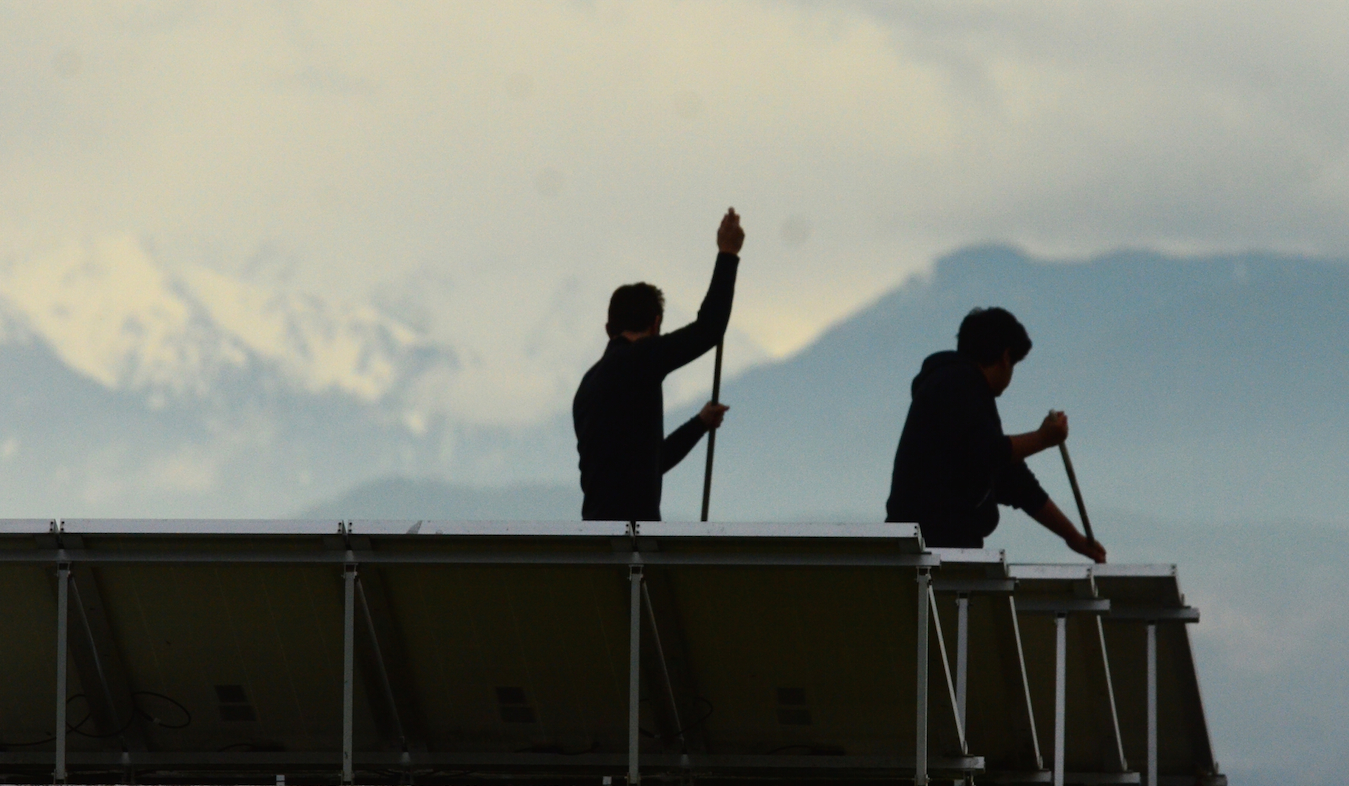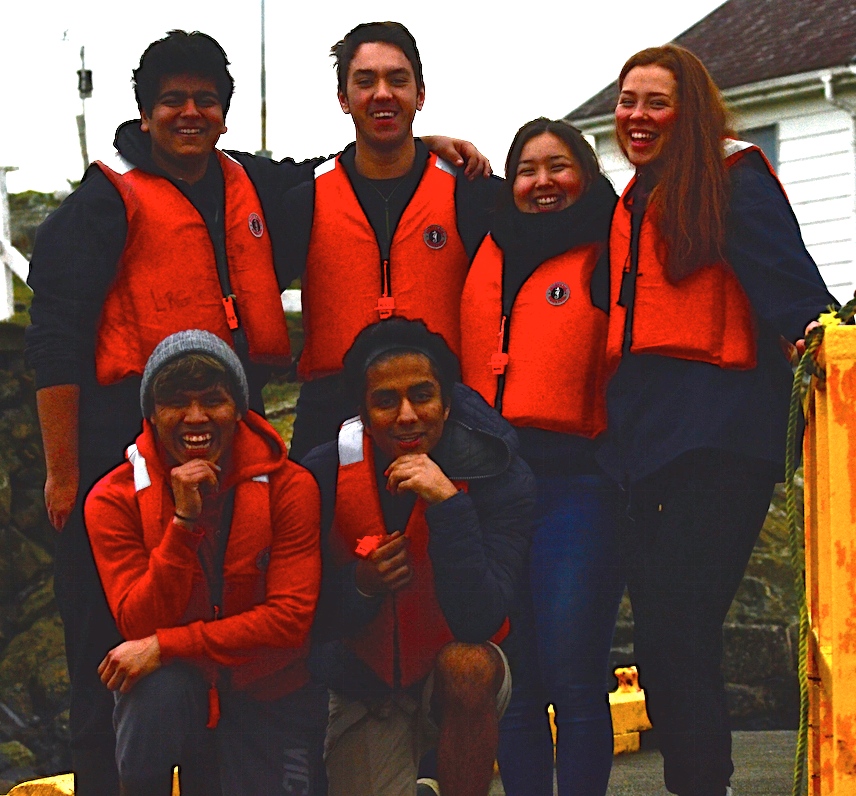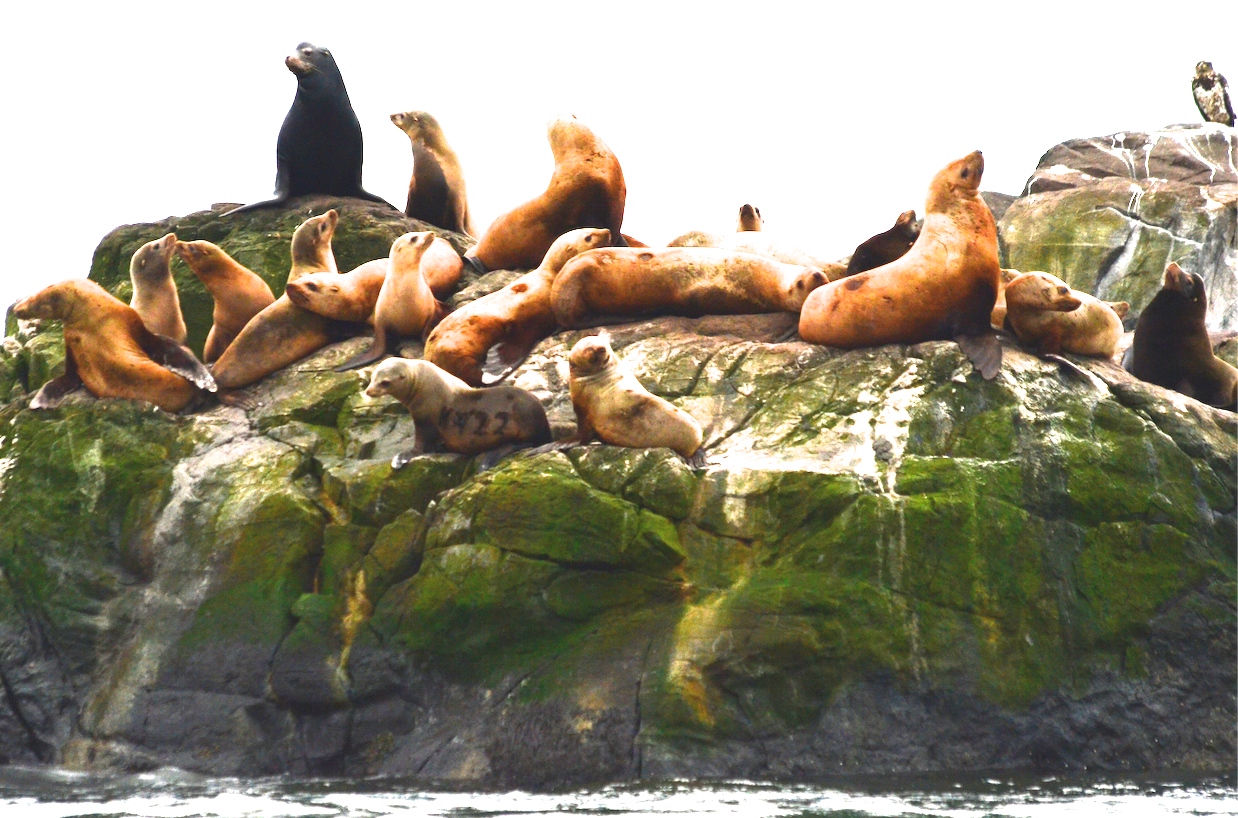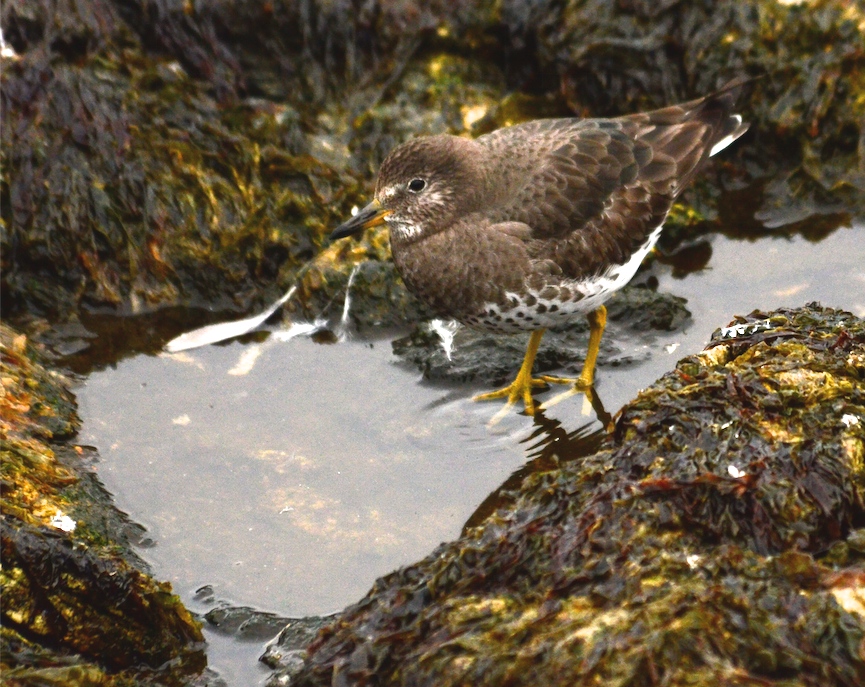The morning was quiet, overcast and uneventful, weather-wise. Light variable winds continued and the wind did not rise above 15 knots until mid afternoon when the wind became more definitely north by northeast. There is a wind warning in effect calling for south winds of 20 knots near the west entrance to the Strait of Juan de Fuca tonight. The barometer continued yesterday’s gradual fall and reached ~1003 hPa when this log was posted at 18:00. The forecast is calling for a 60% chance of showers with variable light winds becoming southwest 10 to 20 Monday evening.
Only one whale-watching vessel was observed today. They moved slowly and carefully while watching the sea lions and eagles on South Rock. The sea lions didn’t even look up.
Ecologically there was nothing outstanding to report. Spring steadily approaches and will soon be here. There were a few more shorebirds resting, grooming, bathing, feeding and sleeping on Great Race, before the next part of their journeys. Black Oystercatchers are definitely staking out territories in pairs at all the same places that were used last year and the year before. Eagles continue to be busy on all of the islets but particularly Great Race South and West. The sea lions seem truly exhausted and during the day sleep together in huddles with the two species mixed together. One new brand was noted but light levels were too low to verify the number.
Sunlight levels were surprisingly low today. This is good for a low UV index but is not so great in terms of generating solar power. Students Aziz and Sam helped by cleaning most of the solar panels, which helped us capture more of the available energy. Kyle and Keneshka helped move empty propane tanks and other outgoing gear to the end of the jetty for pick-up. Together the four students made a good team and cleaned up the student house after using it for the weekend. Sam also helped launch and retrieve the whaler in time for a test drive to check a couple of things before Chris arrived in Second Nature. That all went well.
Chris arrived for pick-up, with a guest, a naval doctor who seemed to enjoy visiting Race Rocks. He felt very lucky to have grown up beside the sea in Wales. Race Rocks reminded him of larger, more isolated seabird islands that he had visited in Wales.
Malou, a student from Greenland continued her training on Second Nature today and did very well demonstrating her ability. She made a good landing and managed to launch back out into the stream, away from the concrete jetty with no damage, a feat in itself. My limited experience driving Second Nature was that it was a tricky boat to drive, so kudos to Malou.
- Keneshka and Kyle (note the nice knots) moving a propane cylinder.
- Sam & Aziz polish up the solar panels.
- Pearson students really are amazing.
- Sea lions of both species hauled out together. Juvenile bald eagle on right, branded sea lion on bottom left.
- Surfbird in the intertidal.

